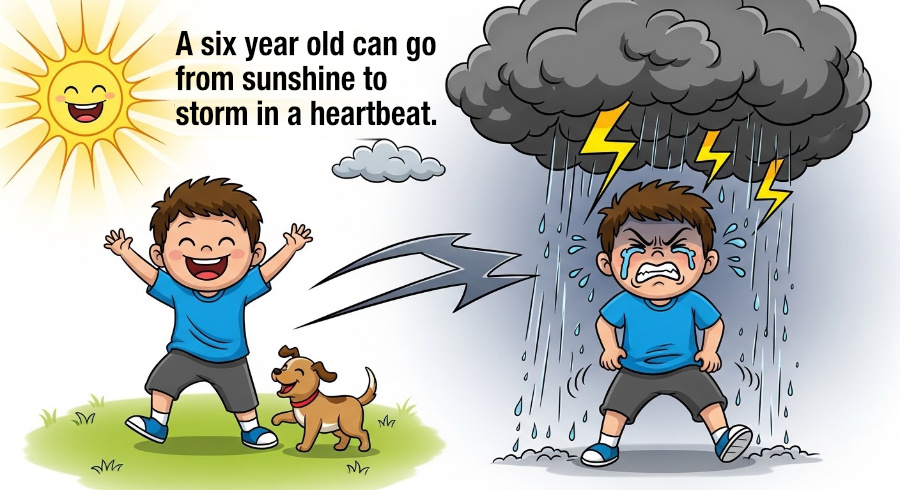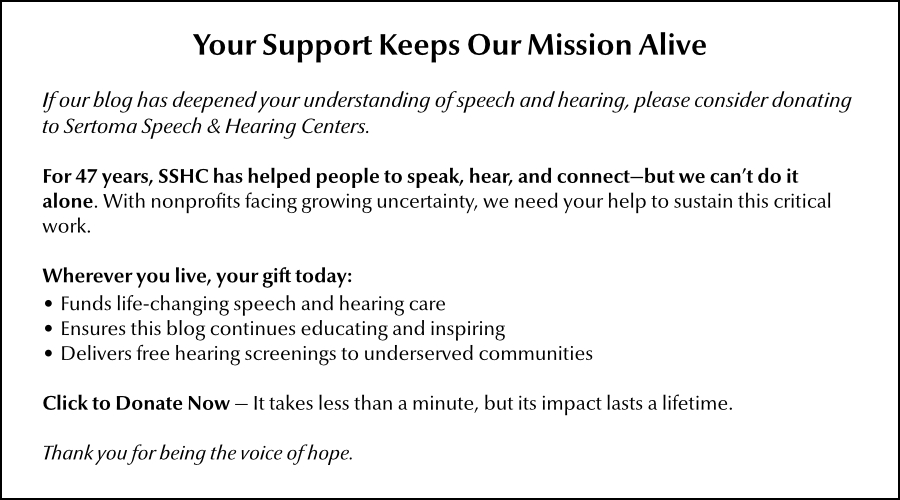Six-year-olds can flip from sunshine to storm in a heartbeat. Scientists now call this flare-up “wobbly-tooth puberty”—the kickoff to ages 6-12, when the brain wires lifelong emotional control and social smarts.
- The term is from the German Wackelzahnpubertät (“wobbly-tooth puberty”), which describes the mood swings, aggression, and sadness that often appear around age six.
- Not hormonal, it marks the start of “middle childhood” (6–12 yrs), an often-ignored but transformative period in which the brain develops for mature thought and identity.
Why it matters
Suppose your child has hearing loss or speech difficulties. In that case, these conditions can inhibit this rewiring, leaving children lonelier, moodier, and falling behind—even if they already use hearing aids or receive speech therapy.
A difficult truth
- Hearing loss—even if it is mild—makes it difficult to hear jokes and playground gossip. Studies show that 86% of children in primary school with hearing aids still struggle to keep friends.
- Speech errors past age 8 (think stubborn /r/ sounds) are judged harshly by peers and can tank a child's confidence.
Yes, but: Catching problems early flips the script dramatically improving outcomes.

What to know
- Screen on day one of school. Late-onset or progressive hearing loss hides behind “wobbly-tooth” mood swings.
- Look for real-life coaching. Children need practice reading subtle social cues—such as facial expressions and body language—that hearing aids cannot interpret.
- Double down on speech therapy after 8. Errors at this stage rarely self-correct; targeted drills plus peer-education sessions can reduce teasing and increase social and classroom participation.
Zoom out
Coaching emotional skills by listening, validating, and reframing helps children with hearing or speech gaps keep up socially and emotionally.
The takeaway
Middle childhood is a launchpad, not a crisis. Spot the hurdles early, layer on support, and watch children sail past the wobbles into confident tweens.
A special thanks to Brittany Townsend, a Doctor of Audiology student at the University of Illinois, Urbana-Champaign, for her expertise in preparing this post.
Protect your child’s growing mind
Catch hearing and speech issues early and give your child the clear sound and confidence they need to thrive.
Call 708-599-9500 to schedule your child's free 15-minute hearing screening by an audiologist.
★ For facts about hearing loss and hearing aid options, grab your copy of The Hearing Loss Guide.
★ Sign up for our newsletter for the latest on Hearing aids, dementia triggered by hearing loss, pediatric speech and hearing, speech-language therapies, Parkinson's Voice therapies, and occupational-hearing conservation. We publish our newsletter eight times a year.
Healthy hearing sets the stage for happy play, bold learning, and lasting connections.


